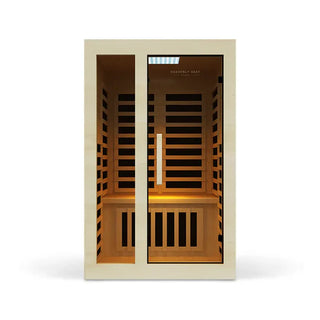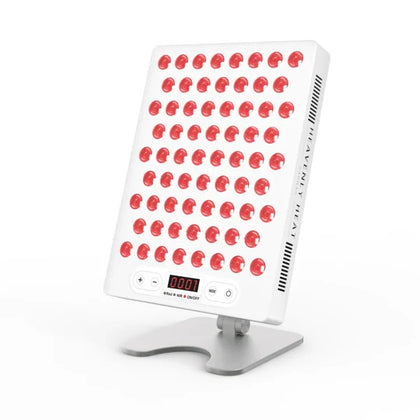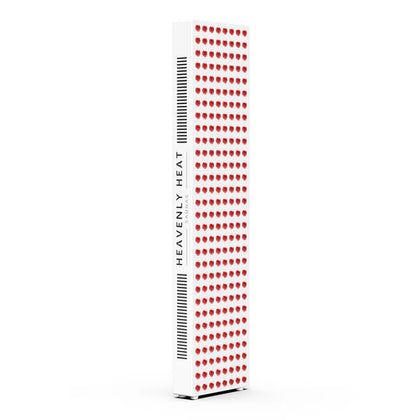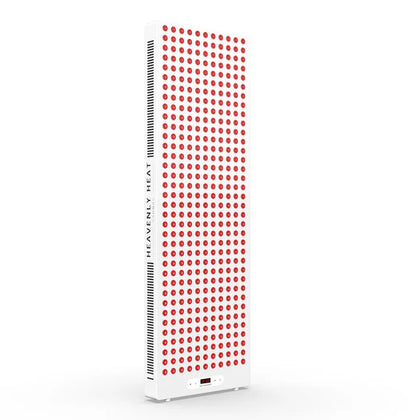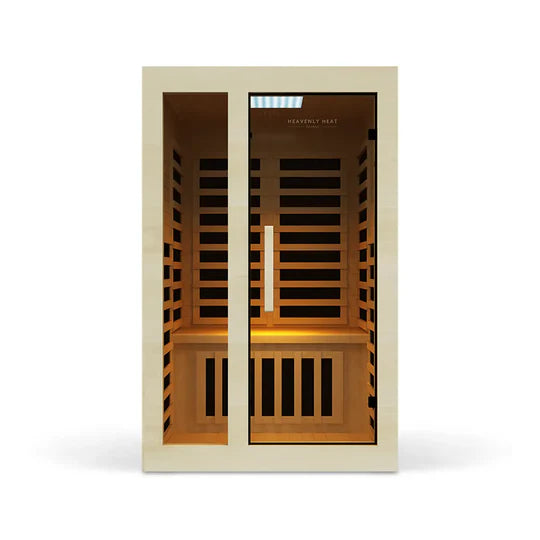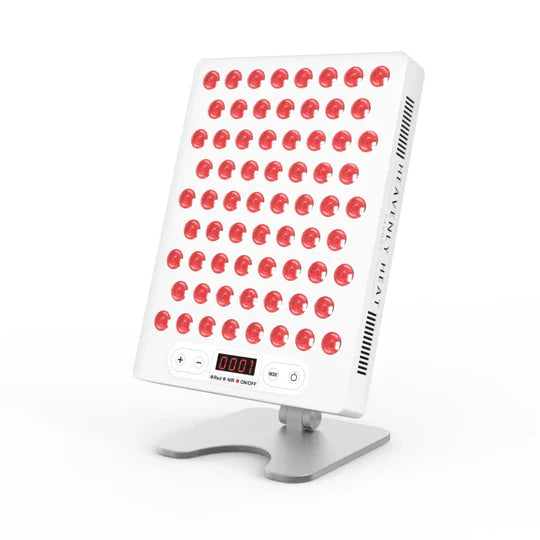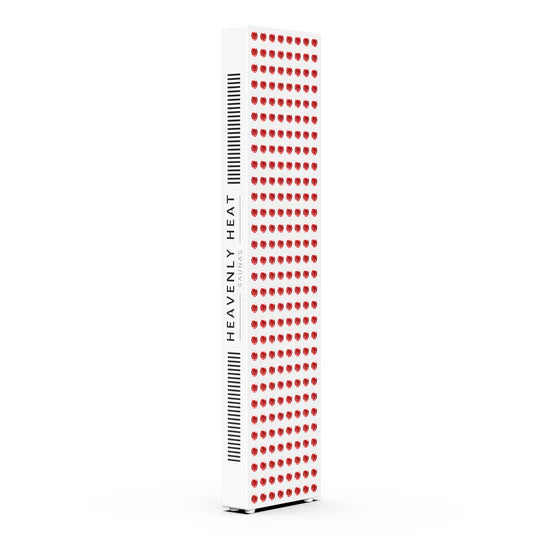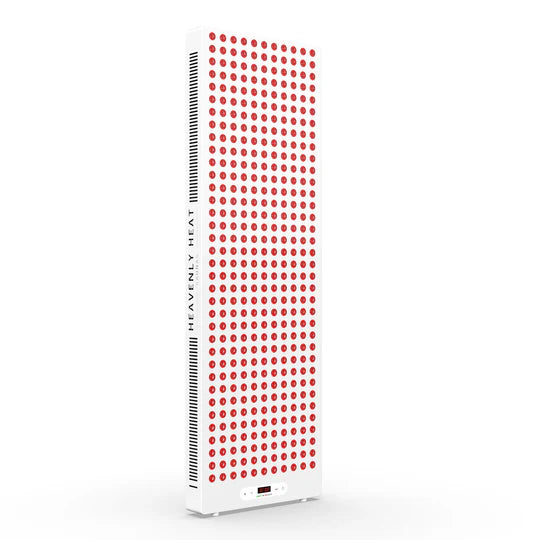Does A Hot Tub Dehydrate You?

Dry mouth, dizziness, headaches, or even sunken eyes, these are more than just passing discomforts; they’re classic signs of dehydration.
Yet many people overlook how easily it can creep up, especially when relaxing in a hot tub. Ignore it, and you risk serious health issues. But here’s the big question: does soaking actually dehydrate you? Let’s uncover the truth.
Table of contents
Key Takeaways
-
Stay Hydrated: Drink water before, during, and after your hot tub session.
-
Limit Soak Time: Keep sessions between 15–30 minutes to prevent overheating and dehydration.
-
Watch Heat Effects: Hot water raises core temperature, increases sweating, and speeds up fluid loss.
-
Avoid Alcohol and Certain Medications: They can amplify dehydration and strain your heart.
-
Recognize Warning Signs: Dizziness, dry mouth, and fatigue signal you need to rehydrate immediately.
What is dehydration?
Dehydration, as explained by Mayo Clinic, occurs when the body loses more fluids than it takes in, leaving insufficient water to support normal bodily functions.
This can happen gradually or quickly, depending on circumstances, and affects anyone, though certain groups are more vulnerable.
Primary causes of dehydration include:
Insufficient fluid intake: Not drinking enough water, especially during illness or busy days.
Excessive fluid loss: Sweating from hot weather, vigorous exercise, vomiting, or diarrhea.
Medications: Diuretics (“water pills”) and some blood pressure medicines can increase urination.
Illnesses: Fever or infections like urinary tract infections or gastrointestinal illnesses increase fluid requirements.
Risk factors for dehydration highlight those who need extra attention:
Infants and young children: May not communicate thirst and can lose fluids quickly from vomiting or diarrhea.
Older adults: Have lower water reserves and reduced thirst response; illnesses or memory issues can worsen risk.
Dehydration can affect daily life by causing fatigue, dizziness, difficulty concentrating, and decreased physical performance.
Practical management involves regularly drinking water and eating fluid-rich foods like fruits and vegetables.
In situations where water alone isn’t enough, oral rehydration solutions can help restore both fluids and essential electrolytes.
With consistent hydration habits, the body can maintain balance, supporting energy, mental clarity, and overall well-being.
Does a Hot Tub Cause Dehydration?
Spending time in a hot tub can lead to fluid loss because the body sweats to regulate rising core temperature.
In just 15–30 minutes, a healthy person may lose around 0.25 to 0.5 liters of fluid (about 1–2 cups), though this amount depends on several factors such as individual sweat rate, water temperature, acclimatization, and humidity.
The hotter the water and the more your body’s core temperature rises, the more you sweat in an effort to cool down.
Research shows that hot water immersion raises core body temperature and increases blood flow, which can benefit vascular health but also speeds up fluid loss.
Experts note that short soaks rarely cause serious dehydration, yet longer sessions may trigger mild symptoms like dry mouth, dizziness, headache, or unusual thirst.
These are signals your body needs more fluids. To stay safe, health sources recommend drinking water before and after your soak and avoiding prolonged time in the tub, ensuring you enjoy the benefits without the risks of dehydration.
Why Can Hot Tubs Lead to Dehydration?
Hot Tub Heat Makes You Lose Water Fast
When you relax in a hot tub, your body responds much like it does in very hot weather. Under normal, cool conditions, you might lose only about 500 ml of water per day through skin evaporation.
But research from the National Academies Press shows that heat stress can push that loss up to several liters in a single day.
That’s why hot tubs and saunas are known for speeding up fluid loss. In fact, findings reported in the Journal of Human Kinetics show that an average sauna session can cause around 1 liter of sweat loss, roughly equal to 1 kilogram of body weight.
During just 15–30 minutes in a hot tub, your core temperature can climb by 0.5 to 1°C (1–2°F). To cool down, your body ramps up sweating, which flushes out both water and electrolytes.
If you don’t replace what’s lost, dehydration can follow, often bringing dizziness, fatigue, or nausea.
The hotter the water and the longer you soak, the faster this process happens, making hydration before and after essential.
Sweating in Hot Water Drains Your Body
When you sit in a hot tub, your body responds much like it does under extreme heat, by sweating heavily to cool down.
Findings in the Journal of Occupational Medicine and Toxicology highlight that in very hot conditions, sweat losses can reach more than 1.5 liters per hour, which is a remarkable amount of fluid to lose in such a short time.
The challenge is greater in hot water than in the open air, because evaporation, the body’s natural cooling method, doesn’t work effectively.
Instead, the heat gets trapped, forcing your body to work harder and driving up core temperature more quickly.
Research published in Frontiers in Physiology has shown that repeated hot water immersion can lead to useful heat adaptations, like slightly lowering resting core temperature and easing strain on the heart.
Still, the immediate effect is clear: a rise in core temperature of about 1.1°C and significant fluid loss.
That’s why hot tubs can leave you dehydrated faster than you’d expect, unless you hydrate well before and after soaking.

Faster Heart Rate Speeds Up Dehydration
When you sink into a hot tub, the heat does more than ease your muscles, it also makes your heart work harder.
Healthline notes that warm water lowers blood pressure while boosting heart rate, improving circulation in a way that mimics light aerobic exercise, like a brisk walk.
While this may feel invigorating, there’s a hidden cost: a faster heart rate increases your body’s demand for fluids, which speeds up water loss.
Evidence discussed in the journal Nutrients shows that even mild dehydration, or hypohydration, isn’t just about feeling thirsty.
It can interfere with how blood vessels function, strain the cardiovascular system, and even impair mental sharpness and physical performance.
Adding to this, the Centers for Disease Control and Prevention (CDC) warns that heat stress, from hot tubs or high outdoor temperatures, places extra pressure on the heart.
This added strain can accelerate dehydration, upset electrolyte balance, and in some cases heighten the risk of serious complications, particularly for people who already have underlying cardiovascular conditions.
Hot Water Affects Blood Flow and Fluids
When you soak in a hot tub, your body reacts in fascinating ways to manage the heat. The warm water signals your blood vessels, especially the tiny capillaries near the skin, to widen, allowing heat to escape more easily.
Cleveland Clinic notes that while this helps regulate temperature, it also shifts fluids away from vital organs and muscles, which can sometimes lower blood pressure enough to make you feel lightheaded or even faint if you stay in too long.
Research published in Temperature adds to this picture, showing that hot-water immersion can lower systolic blood pressure by 6–7 mm Hg for up to 24 hours, underscoring how strongly hot water impacts circulation.
At the same time, widened vessels and increased sweating steadily drain your body’s fluid reserves.
Prolonged soaking makes the effect worse, especially since the soothing heat can mask your natural thirst cues, leaving dehydration easy to overlook.
Interestingly, repeated hot-water immersion can expand plasma volume over time as part of heat acclimation, but in a single session, the risk of fluid loss is real.
Alcohol and Medications Increase Dehydration Risk
Spending time in a hot tub already places your body under heat stress, making you sweat and lose fluids.
Drinking alcohol on top of that makes things worse because it acts as a diuretic, encouraging your body to produce more urine.
The mix of sweating and increased urination can speed up fluid loss, sometimes leading to dizziness, lightheadedness, or even heat stroke.
Findings published in Nutrients highlight that stronger alcoholic drinks, like wine and spirits, significantly raised urine output in older adults during the first few hours after drinking, while beer didn’t show the same short-term effect.
Medications can also raise the stakes. As reviewed in Pharmacological Reviews (Elsevier), common drugs such as diuretics and antihypertensives alter how the body manages temperature and fluid balance.
These changes make it harder to stay cool and hydrated in hot conditions. For older adults and people managing chronic health issues, the combination of alcohol, certain medications, and hot tub use can quickly shift from relaxing to risky.

How Long Should You Stay in a Hot Tub Safely?
Hot tubs can feel amazing after a long day, but soaking too long may leave you overheated or dehydrated.
Guidance from health experts, including the CDC and WebMD, suggests keeping the water around 100°F for comfort, and never above 104°F.
At a typical range of 100–102°F, most healthy adults can relax for 15–30 minutes, but at the maximum 104°F, it’s best to limit your soak to just 15–20 minutes.
Spending more than 45 minutes in hotter water pushes your body into risky territory, raising the chance of dizziness, heat stress, or dehydration.
Extra precautions are needed for children, pregnant women, and people with heart conditions, kids should stay in cooler water (around 98°F) for no longer than 10–15 minutes, while pregnant women are advised to consult their doctor and keep sessions short.
Staying hydrated is essential: sip water before and after your soak and skip alcohol, which speeds up dehydration.
If you begin to feel lightheaded or unwell, step out immediately. Balancing time, temperature, and hydration keeps hot tubbing safe and enjoyable.
The Role of Alcohol, Caffeine, and Medications in Hot Tub Dehydration
Relaxing in a hot tub feels wonderful, but it’s important to recognize how alcohol, caffeine, and certain medications can quickly increase dehydration risks.
While soaking, your body sweats to release heat, but because you’re underwater, it’s easy to miss how much fluid you’re actually losing.
Alcohol makes this worse by acting as a diuretic, flushing out more water and electrolytes. This can lead to dizziness, nausea, headaches, a rapid heartbeat, or in extreme cases, severe medical complications. Caffeine can add to the problem as well.
A study in Medicine & Science in Sports & Exercise found that caffeine raised urine output and increased sweat electrolyte loss during heat stress, which may leave you more depleted in a hot tub.
Medications create additional concerns. As highlighted by AARP, diuretics and certain blood pressure drugs can interfere with the body’s ability to stay hydrated and regulate heat, while antihistamines may worsen overheating.
Keeping these factors in mind helps you enjoy your soak more safely and avoid preventable health risks.
Dehydration Symptoms and Warning Signs
Thirst, Dry Mouth, and Early Clues
Thirst is often the body’s first and most reliable signal that your fluid levels are dropping. The British Heart Foundation (BHF) explains that dehydration can range from mild to severe, and thirst is the body’s natural way of reminding you to drink.
Another early sign to notice is urine that becomes darker than usual. A dry mouth is also common and often shows up when you’ve lost around 3%–5% of your body weight in fluids.
Even small fluid losses, as little as 1%–2%, can trigger noticeable symptoms such as thirst, tiredness, and reduced urination.
Guidelines from health organizations like the CDC and WHO also point to early dehydration signs including dry or sticky mouth, dizziness, headache, and fatigue.
In children, warning signs may appear as crying without tears, fewer wet diapers, irritability, or sunken eyes.
By paying attention to these early clues and rehydrating with water or electrolyte drinks, you can often correct dehydration before it worsens. In severe cases, medical treatment with IV fluids may be needed.
Fatigue, Dizziness, and Physical Weakness
When your body loses too much fluid, it can set off a chain of uncomfortable, and sometimes dangerous, symptoms.
Harvard Health Publishing explains that dehydration reduces blood volume, which in turn lowers blood pressure and restricts blood flow to the brain, often making you feel dizzy or lightheaded.
Even mild dehydration, as highlighted by News-Medical, can take a serious toll on physical performance by raising body temperature and heart rate, making everyday activities feel far more draining.
Studies show that losing just 2–3% of your body weight through water loss is enough to trigger fatigue, muscle weakness, and problems with focus, while losses of 4% or more can bring on headaches, pronounced dizziness, and even impaired thinking.
Because muscles are made largely of water, dehydration directly affects their ability to contract and generate energy, which limits both strength and endurance.
A glass of water may ease minor symptoms, but more severe cases often need medical care, including intravenous fluids and electrolytes, to restore balance.
Confusion, Irritability, and Brain Effects
Even mild dehydration as little as 1–2% of fluid loss, can have a surprisingly strong effect on the brain.
Because water makes up roughly 75% of brain mass, even a small drop in hydration can quickly interfere with how we think, feel, and react.
Findings reported in the International Journal of Environmental Research and Public Health showed that participants who went without water experienced poorer memory, shorter attention spans, and slower reaction times, along with greater fatigue and mental mistakes.
After rehydration, however, their focus, mood, and short-term memory improved noticeably. Similarly, research published in the International Journal of Academic Medicine and Pharmacy revealed that dehydration can slow reaction times by as much as 18% and reduce overall alertness, making everyday tasks more challenging.
The Center for Integrative Psychiatry also points out that dehydration disrupts brain function, raises stress hormones, and can trigger irritability, anxiety, and brain fog.
Altogether, these findings highlight that proper hydration is essential not just for physical health but also for mental clarity, emotional balance, and sharp performance.
Rapid Heartbeat, Low Blood Pressure, and Severe Danger
When your body loses too much fluid, your blood volume decreases, forcing the heart to work overtime.
To keep blood and oxygen flowing, it speeds up, this rapid heartbeat is called tachycardia. Many people describe it as a racing or pounding sensation in the chest, and medical studies consistently link it to dehydration.
Fluid loss also disrupts electrolytes like sodium and potassium, which are vital for a steady heartbeat, raising the risk of palpitations or irregular rhythms.
At the same time, lower blood volume can cause blood pressure to drop. The Mayo Clinic notes that dehydration after illness, heavy sweating, or diuretic use often leads to dangerous dips in blood pressure.
In severe cases, typically when more than 20% of body water is lost, the body may enter hypovolemic shock, where circulation collapses and organs are starved of oxygen.
The National Institutes of Health warns this state can quickly progress to organ failure or even death if untreated.
Spotting these warning signs early and seeking prompt rehydration or medical care can be lifesaving.
Preventing Dehydration While Using a Hot Tub
Drink Water Before You Get In
Pre-hydrating before stepping into a hot tub is one of the easiest and most effective ways to lower your risk of dehydration.
While there isn’t a precise percentage showing how much it helps, experts agree that drinking water or an electrolyte-rich beverage beforehand makes a big difference.
Hot water pushes your body to work harder to cool itself, which ramps up sweating—sometimes reaching 3 to 4 liters per hour in extreme conditions, as noted by the National Academies Press.
Having fluids in your system before your soak helps stabilize body temperature, supports normal heart rate, and prevents dangerous spikes linked to fluid loss.
Guidance from the Better Health Channel (Victoria State Government) also highlights that staying hydrated improves focus, endurance, and overall comfort.
To stay safe, drink a glass of water or an electrolyte beverage before getting in, and sip more every 20–30 minutes.
Skip alcohol and caffeine, which dehydrate you further. Most importantly, listen to your body, if you start feeling dizzy, overly thirsty, or notice your heart racing, it’s time to step out and rehydrate.
Sip Water While Soaking
When enjoying a hot tub, it’s crucial to stay hydrated to avoid dehydration and heat-related issues.
The National Institute for Occupational Safety and Health (NIOSH) recommends drinking 8 ounces of water every 15-20 minutes while soaking to keep hydration levels up.
This simple habit helps replenish fluids lost through sweating. Prolonged exposure to hot water can lead to dizziness or fainting, especially if you're not properly hydrated.
The Korey Stringer Institute highlights how dehydration limits blood volume, increasing the risk of heat syncope.
To stay safe, take breaks to cool off, avoid alcohol, and hydrate before, during, and after your soak.
By listening to your body and maintaining fluid intake, you'll ensure a more comfortable, enjoyable, and safer hot tub experience.
Replenish Electrolytes if Needed
When using a hot tub, it’s essential to stay hydrated. Prolonged exposure to hot water increases sweating, which causes the body to lose key electrolytes like sodium, potassium, calcium, and magnesium, vital for hydration and muscle function.
As sweating intensifies, these electrolytes are depleted, which can lead to dehydration and imbalances affecting nerve and muscle performance.
Studies show that electrolyte drinks are more effective than water alone in replenishing fluids, helping to prevent dehydration and reducing blood viscosity after a hot tub session.
According to the National Academy of Sciences, solutions with specific levels of sodium, potassium, and carbohydrates are best for restoring lost electrolytes.
Whether you’re spending extended time in hot water or engaging in physical activity, it's important to drink water and consider electrolyte supplements to balance fluid levels.
By doing so, you can safely enjoy your hot tub experience without compromising your health. (176 words)
Comparing Hot Tub Dehydration to Sauna or Exercise
Hot tubs, saunas, and exercise each affect fluid loss differently, and the body responds in unique ways.
Studies suggest that hot tubs can place greater strain on your cooling system than saunas. For instance, research found that spending 45 minutes in a hot tub at 40.5°C raised core body temperature by about 1.1°C—higher than both traditional and infrared saunas, while also producing the most sweat.
What makes hot tubs tricky is that the warm water masks your perception of sweating, so you may lose fluids and electrolytes without realizing it.
In contrast, exercise pushes sweat rates much higher because of muscle activity and metabolic heat, leading to more significant electrolyte depletion.
Saunas fall in the middle: they increase heart rate and circulation but typically cause a smaller temperature rise compared to hot tubs.
Taken together, hot tubs create the strongest thermal load, exercise causes the greatest electrolyte loss, and saunas mimic the effects of moderate physical exertion.
No matter the activity, staying hydrated is key to preventing imbalances and protecting cardiovascular health.
FAQ
Is it safe to drink water while in the hot tub?
Drinking water while relaxing in a hot tub isn’t just safe—it’s one of the smartest things you can do for your body.
Findings published in the Journal of Exercise Nutrition & Biochemistry highlight that actively drinking fluids in hot conditions boosts overall water intake and helps the body handle heat stress more effectively.
When you’re soaking, your body naturally sweats to regulate temperature, which means fluid loss is happening even if you don’t feel it.
Without replenishment, this can quickly lead to dehydration, increasing risks like dizziness, nausea, heat exhaustion, kidney strain, and electrolyte imbalance.
Health experts, including those at WebMD, emphasize sipping water during a soak to cool the body and maintain proper circulation.
Staying hydrated also lightens the burden on your heart by keeping blood volume stable, which makes it easier to regulate temperature.
For the best results, drink cool water before, during, and after your session, and steer clear of alcohol—it speeds up dehydration and makes hot tub use riskier.
Can dehydration cause dizziness or nausea after hot tub use?
Yes dehydration is one of the main reasons people experience dizziness or nausea after using a hot tub.
When you sit in hot water, your body sweats to release excess heat, leading to fluid and electrolyte loss.
This drop in fluids reduces blood volume, which lowers blood pressure and makes it harder for oxygen-rich blood to reach your brain.
The outcome can be lightheadedness, dizziness, or even fainting, especially when you stand up too quickly.
Health organizations, including the American Red Cross, caution that soaking longer than 15 minutes increases the likelihood of nausea, dizziness, and fainting as your body struggles to handle the heat load.
Medical experts also explain that electrolyte imbalances, such as low sodium (hyponatremia) or low potassium (hypokalemia), can intensify these symptoms by interfering with nerve and muscle function.
To lower your risk, limit your soak to short sessions, stay hydrated with water or electrolyte drinks before and after, and pay attention to how your body feels. If dizziness or nausea strikes, it’s best to step out and cool down.
Should I hydrate before and after my hot tub session?
Yes hydrating both before and after your hot tub soak is key to staying safe and comfortable. Sitting in hot water raises your body temperature, which triggers sweating and fluid loss.
This can be more than you realize, since the heat often dulls your thirst signals, and the soak itself can act like a mild diuretic, making you urinate more.
Health experts recommend drinking about 16 ounces of water roughly 30 minutes before you get in, while also avoiding alcohol or caffeine, as both can worsen dehydration.
Keeping a bottle of water within reach and sipping during your soak helps as well, especially if you limit your sessions to 15–20 minutes.
After you step out, research suggests replenishing with 16–24 ounces of water or an electrolyte-rich drink to restore fluid balance.
Studies also highlight that proper hydration lowers cardiovascular strain, helping your heart rate and blood pressure recover more smoothly.
In short, drinking water before and after your soak ensures a safer, more refreshing hot tub experience.
Are electrolyte drinks better than water for hot tub hydration?
When it comes to rehydrating after a hot tub soak, plain water is usually the smartest choice. Insights from the University of New Hampshire Extension explain that electrolyte drinks are most useful after very intense exercise lasting over 75 minutes, extreme heat exposure, or illness involving heavy sweating, vomiting, or diarrhea.
For the average hot tub user, your body simply doesn’t lose enough minerals to make these drinks necessary, most of the time, a balanced diet and water will cover your needs.
Sweat in hot tubs contains mostly sodium and chloride, with smaller amounts of potassium, calcium, and magnesium.
If you happen to sweat heavily or notice a salty residue on your skin, an electrolyte drink with sodium may help restore balance.
Research also shows that carbohydrate-electrolyte solutions can speed recovery more effectively than water after significant dehydration.
Still, for casual soaking, plain water is more than enough. Just remember, as the Extension also cautions, overusing electrolyte drinks can be harmful due to added sugars or excess sodium.




